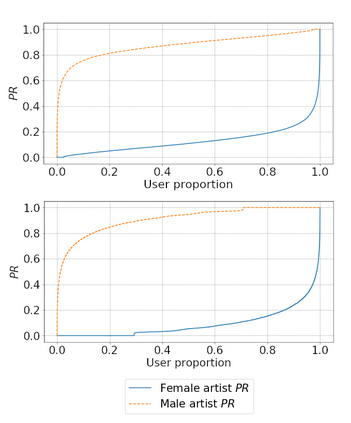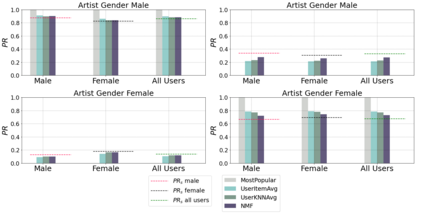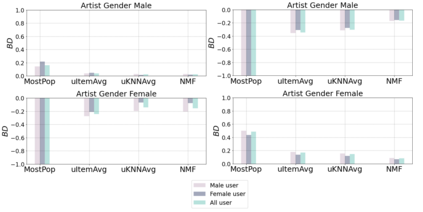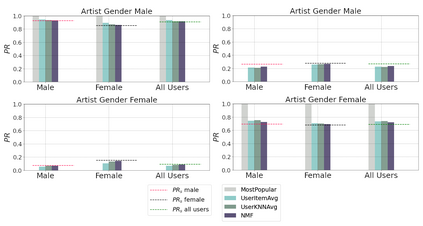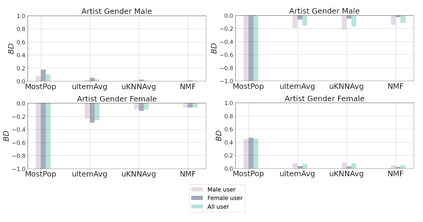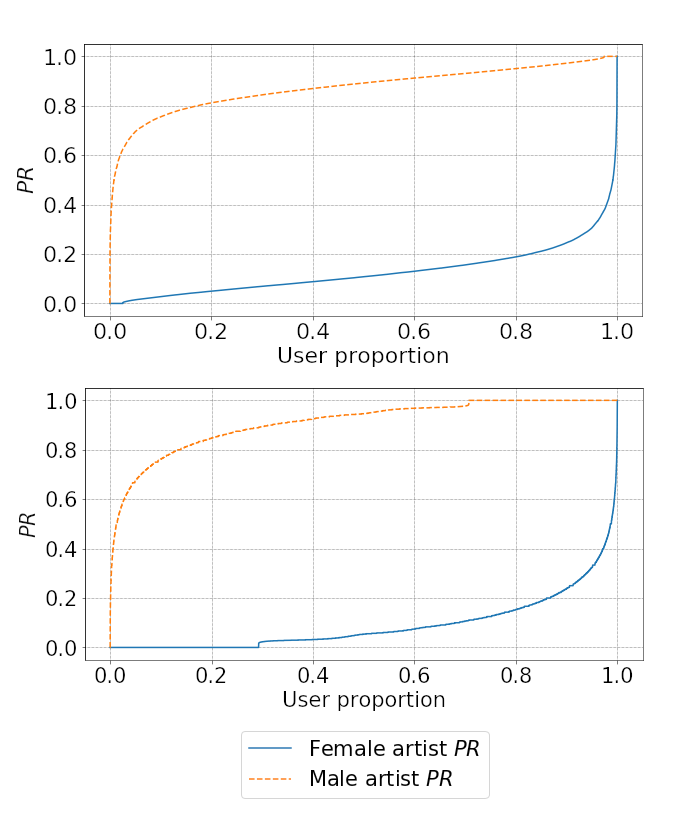Music Recommender Systems (mRS) are designed to give personalised and meaningful recommendations of items (i.e. songs, playlists or artists) to a user base, thereby reflecting and further complementing individual users' specific music preferences. Whilst accuracy metrics have been widely applied to evaluate recommendations in mRS literature, evaluating a user's item utility from other impact-oriented perspectives, including their potential for discrimination, is still a novel evaluation practice in the music domain. In this work, we center our attention on a specific phenomenon for which we want to estimate if mRS may exacerbate its impact: \textit{gender bias}.Our work presents an exploratory study, analyzing the extent to which commonly deployed state of the art Collaborative Filtering (CF) algorithms may act to further increase or decrease artist gender bias. % on a popular music streaming platform, Last.fm. To assess group biases introduced by CF, we deploy a recently proposed metric of bias disparity on two listening event datasets: the LFM-1b dataset, and the earlier constructed Celma's dataset. Our work traces the causes of disparity to variations in input gender distributions and user-item preferences, highlighting the effect such configurations can have on user's gender bias after recommendation generation.
翻译:音乐建议系统(mRS)的设计旨在向用户提供个人化和有意义的项目(如歌曲、播放列表或艺术家)建议,从而反映和进一步补充个人用户的特定音乐偏好。虽然在评价最低要求文献中的建议方面广泛采用了准确度指标,但从其他面向影响的观点(包括其歧视可能性)评估用户的项目效用,从其他面向影响的观点(包括其歧视潜力)来看,仍然是音乐领域的一种新颖的评价做法。在这项工作中,我们把注意力集中在一个具体现象上,我们想估计最低要求是否会加剧其影响:\ textit{性别偏差}。我们的工作是一项探索性研究,分析通常部署的艺术合作过滤算法状态在多大程度上可能进一步增加或减少艺术家的性别偏差。在流行音乐流平台上,%,Last.fm.为了评估CFF提出的群体偏差,我们最近在两个监听事件数据集(LFM-1b数据集和早先建造的Celma数据集)上提出了一种偏差的衡量标准。我们的工作追踪差异的原因,在用户分配和生成性别偏差后,可以突出这种偏差的影响。

